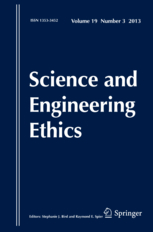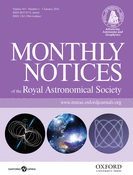 This week at Retraction Watch featured a look at the huge problem of misidentified cell lines, a check-in with a company that retracted a paper as it was about to go public, and Diederik Stapel’s 58th retraction. Here’s what was happening elsewhere: Continue reading Weekend reads: What do PhDs earn?; university refuses to release data; collaboration’s dark side
This week at Retraction Watch featured a look at the huge problem of misidentified cell lines, a check-in with a company that retracted a paper as it was about to go public, and Diederik Stapel’s 58th retraction. Here’s what was happening elsewhere: Continue reading Weekend reads: What do PhDs earn?; university refuses to release data; collaboration’s dark side
Is an increase in retractions good news? Maybe, suggests new study
 In Latin America, retractions for plagiarism and other issues have increased markedly — which may be a positive sign that editors and authors are paying closer attention to publishing ethics, according to a small study published in Science and Engineering Ethics.
In Latin America, retractions for plagiarism and other issues have increased markedly — which may be a positive sign that editors and authors are paying closer attention to publishing ethics, according to a small study published in Science and Engineering Ethics.
The authors examined two major Latin American/Caribbean databases, which mostly include journals from Brazil, and have been indexing articles for more than 15 years. They found only 31 retractions, all of which appeared in 2008 or later. (Roughly half of the retractions were from journals indexed in the Thomas Reuters’ Journal of Citations Report® (JCR).)
This was a notable result, the authors write: Continue reading Is an increase in retractions good news? Maybe, suggests new study
NSF investigating as more falsified results surface from mol bio researcher
 Authors of a paper on the origin and function of a family of transmembrane proteins have retracted it after an investigation at the University of Florida revealed that an author had falsified some results.
Authors of a paper on the origin and function of a family of transmembrane proteins have retracted it after an investigation at the University of Florida revealed that an author had falsified some results.
This is the third paper with falsifications that Chi Leung, a former UF postdoc, is responsible for; this summer, we reported on a retraction and a partial retraction of two other papers on which Leung was a co-author. The case is currently under investigation by the U.S. Office of Research Integrity National Science Foundation, a UF spokeswoman tells us.
The problems in the paper, “Phylogenetic, expression, and functional analyses of anoctamin homologs in Caenorhabditis elegans,” occur in a figure that compares mRNA levels in control and experimental populations of C. elegans. The paper was published in the American Journal of Physiology, and has been cited eight times, according to Thomson Scientific’s Web of Knowledge.
The retraction note explains that, according to the other authors, much of the data in the paper are valid:
Continue reading NSF investigating as more falsified results surface from mol bio researcher
Authors lied about ethics approval for study on obesity, depression
Obesity has retracted a study that suggested overweight people may be less depressed than their slimmer counterparts in cultures where fat isn’t stigmatized, after realizing the authors lied about having ethical approval to conduct the research.
The authors claimed their research protocol had been approved by Norwegian and Bangladeshi ethical committees, but, according to the retraction note, part of the study “was conducted without the required approval of the university ethics board.” The journal’s managing editor told us that there is no evidence that there was harm to the study subjects.
Here’s more from the retraction note for “In Bangladesh, overweight individuals have fewer symptoms of depression than nonoverweight individuals:”
Continue reading Authors lied about ethics approval for study on obesity, depression
Astrophysicists issue two detailed corrections
 A group of astrophysicists has notched a pair of corrections for papers on galaxy clusters, thanks to an error that affected several figures in the papers, but not the overall conclusions.
A group of astrophysicists has notched a pair of corrections for papers on galaxy clusters, thanks to an error that affected several figures in the papers, but not the overall conclusions.
The errors came in the catalog of “mock” galaxies that first author Fabio Zandanel, a postdoc at the University of Amsterdam, created to model features that are found in clusters of galaxies. Two mistakes canceled each other out “almost perfectly,” says Zandanel, making the changes that resulted from them subtle.
Zandanel explained the errors to us:
Continue reading Astrophysicists issue two detailed corrections
Five years after a retraction, company’s stock is up more than 500%
![]() Is ethical behavior good for business?
Is ethical behavior good for business?
Five years ago this month, Swedish pharmaceutical company WntResearch immediately notified shareholders when authors retracted a 2009 Proceedings of the National Academy of Sciences (PNAS) paper on a potential cancer therapy that was key to the company’s business.
At the time, the company’s decision to disclose the retraction hurt its finances, as WntResearch delayed its planned initial public offering for three weeks. It also offered investors and shareholders the opportunity to withdraw their shares of WntResearch stock.
But, aside from one of the paper’s co-authors, “No one did that,” Nils Brünner, WntResearch’s CEO, told us. Since the company’s IPO on December 17, 2010, its stock price has increased from Continue reading Five years after a retraction, company’s stock is up more than 500%
Cancer researcher contributed “false data” to 11 studies
 A former cancer researcher has falsified data in 11 studies, according to the results of a investigation scheduled to be published in the Federal Register tomorrow.
A former cancer researcher has falsified data in 11 studies, according to the results of a investigation scheduled to be published in the Federal Register tomorrow.
The Office of Research Integrity’s findings are based on an inquiry at Virginia Commonwealth University, where Girija Dasmahapatra worked until July of this year, investigating possible therapies for cancer. The misconduct affected research funded by three grants from the National Institutes of Health. Steven Grant, a researcher at VCU, is the principal investigator on the grants, each of which total over $2 million in funding. All of the 11 affected papers will be corrected or retracted, according to the ORI notice.
Two of the papers containing “falsified and/or fabricated” data — a study on an experimental combination of drugs for blood cancer and one on chemotherapies for rare forms of lymphoma — were covered in press releases by VCU.
According to the notice in the Federal Register:
Continue reading Cancer researcher contributed “false data” to 11 studies
We’re wasting a lot of research funding using the wrong cell lines. Here’s one thing we can do.
If you could help reduce the waste of tens of billions of dollars per year in research spending, you’d do it, right?
This is the second in a series of two guest posts about the havoc misidentified cell lines can wreak on research, from Leonard P. Freedman, president of the Global Biological Standards Institute. Freedman who published a paper last summer detailing the financial costs of non-reproducible research — namely, tens of billions of dollars per year. Some of that non-reproducible research is due to the use of contaminated or misidentified cell lines. He writes about one key step to tackling the problem: Ask every scientist to use a relatively inexpensive technique to validate the identity of their cell lines.
Meanwhile, we have to deal with the issue of all the previously published papers that relied on problematic cell lines, now contaminating the scientific literature. Scroll down to the bottom of the post to take a poll on what you think should be done about those papers.

As new frontiers of science emerge, from Pluto to proteins, the very cornerstone of the scientific process—reproducibility—has also reared its head as a huge problem. Estimates of irreproducibility rates of published peer-reviewed papers range from 51% to 89%. An analysis that two colleagues and I recently published in PLOS Biology suggests the U.S. spends $28 billion per year on non-reproducible preclinical research; global spending could be up to $60 billion per year. This lack of reproducibility typically results from cumulative errors or flaws in one or more of the following areas: biological reagents and reference materials, study design, laboratory protocols, and data analysis and reporting. Given the size, scale, and especially the complexity of reproducing preclinical research, there is no single magic bullet fix. This is a difficult issue for scientists to own up to, and for the public to grasp.
However, an approach that has demonstrably addressed similar challenges in other complex and evolving industries, such as those involved in the founding of the Internet, is the expanded use of community-based voluntary standards and best practices. And here’s where we start: Continue reading We’re wasting a lot of research funding using the wrong cell lines. Here’s one thing we can do.
Investigation into CT scan paper reveals plagiarism
![]() A paper on the quality of computed tomography (CT) images of the human body didn’t stand up to a close examination. It’s been retracted after an investigation found that it plagiarized work from two publications and a poster by another researcher.
A paper on the quality of computed tomography (CT) images of the human body didn’t stand up to a close examination. It’s been retracted after an investigation found that it plagiarized work from two publications and a poster by another researcher.
The text in the Journal of the Korean Physical Society paper was taken from work by Kenneth Weiss, a radiologist at the University of Miami, and Jane Weiss, CFO of the couple’s medical imaging company. According to emails that Jane Weiss forwarded to us, Kenneth Weiss brought the plagiarism to light after a PhD student pointed out the similarities between the JKPS paper and one of Weiss’s in the American Journal of Roentgenology. Weiss notified the AJR in January. They started an investigation into the matter, and alerted the JKPS.
The retraction note for “Measurement of image quality in CT images reconstructed with different kernels” provides more details about the investigation:
Continue reading Investigation into CT scan paper reveals plagiarism
Hundreds of researchers are using the wrong cells. That’s a major problem.

What if we told you that approximately 1 in 6 researchers working with human cells are using the wrong cell line? In other words, they believe they are studying the effects of a drug on breast cancer cells, for instance, but what they really have are cells from the bladder. That is the unfortunate reality in life science research today, affecting hundreds of labs. It’s a major source of problematic papers which cannot be replicated, wasting scientists’ time and funding.
We’re pleased to present a guest post from Amanda Capes-Davis, chair of the International Cell Line Authentication Committee (ICLAC), a voluntary scientific committee created to improve awareness of misidentified cell lines. She also collects news about cell line and culture contamination. This is the first in a series of two posts from guest authors about how problematic cell lines are contaminating the scientific literature, and how we can clean it up.
In 2010, I worked alongside Ian Freshney of Glasgow University and other colleagues to publish a list of cross-contaminated or otherwise misidentified cell lines in the International Journal of Cancer. This database of false cell lines is now curated by the International Cell Line Authentication Committee (ICLAC).
All of us who have contributed to the database are aware that cross-contamination is an important ongoing problem. But I think the number of cell lines affected was a surprise, even to many of us in the field who see these problems on a daily basis. Continue reading Hundreds of researchers are using the wrong cells. That’s a major problem.
